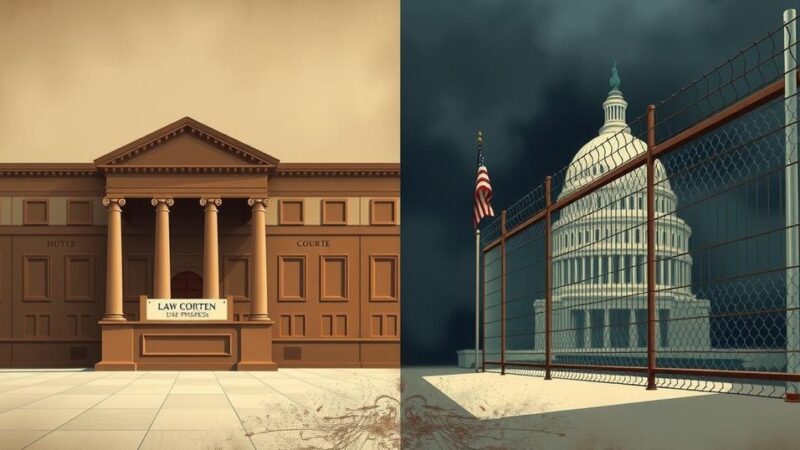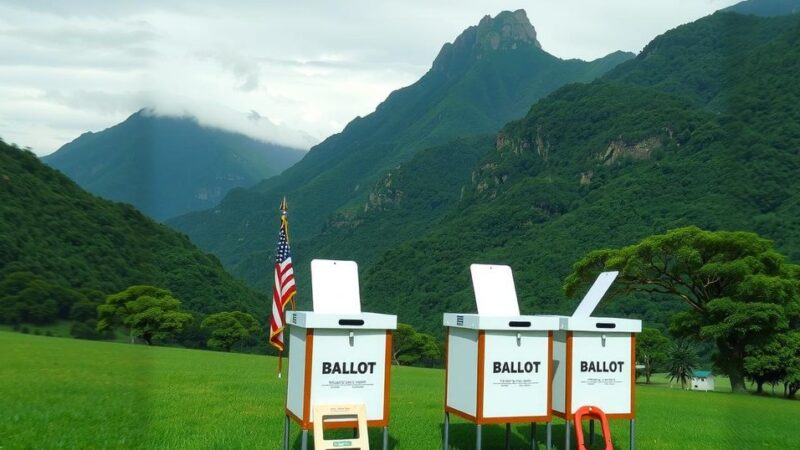Congolese church leaders met with Rwanda-backed M23 rebels in Goma on February 12, 2025, as part of efforts to seek peace following the rebels’ takeover amid ongoing violence. The dialogue emphasizes the importance of ending military confrontations and addressing humanitarian needs. However, mixed reactions from the local population and governmental opposition highlight the challenges in achieving lasting resolutions.
On February 12, 2025, members of the National Episcopal Conference of Congo and the Church of Christ convened in Goma to engage with the political leader of the Rwanda-backed M23 rebels. This meeting seeks to advance peace negotiations following the rebels’ capture of Goma amid intensified violence and conflict. Bishop Donatien Nshole emphasized the urgency of ending the war, asserting that military actions are not a viable solution to the ongoing crisis.
Goma, known as a critical humanitarian hub, is currently hosting approximately 6.5 million displaced individuals due to the ongoing turmoil. Bishop Nshole highlighted the need for all parties involved to restore infrastructural services in the city. The M23 rebels, with the reported backing of around 4,000 Rwandan troops, are among the over 100 armed groups active in Congo’s mineral-rich eastern region.
The recent hostilities around Goma have resulted in the loss of at least 2,000 lives, according to Congolese authorities. Although peace talks have been initiated by neighboring African nations, these efforts have not resulted in substantial progress. Reports indicate that despite a unilateral ceasefire, fighting continues as the M23 rebels seek to expand their territorial control towards South Kivu’s provincial capital.
U.N. spokesperson Stéphane Dujarric indicated ongoing conflicts in nearby localities, forcing civilians to flee to safer areas. The Congolese government insists that any potential dialogues with the M23 must adhere to previous agreements; additionally, it views the rebels’ ceasefire declaration as insincere and has called for increased sanctions against both the rebels and Rwanda.
The peace initiatives evoke mixed reactions among Goma residents, with some expressing optimism for change while others remain skeptical about the outcomes. Fiston Kitoko, a local resident, voiced disappointment regarding the prospects of these discussions, arguing that meaningful resolutions require direct engagement from leadership. Moreover, President Félix Tshisekedi’s political party has criticized the church leaders for not awaiting official guidance from the government before pursuing peace talks.
The meeting of Congolese church leaders with Rwanda-backed rebels marks a significant attempt to establish peace in Goma following recent violent conflicts. Despite hopeful sentiments from some community members, skepticism remains prevalent regarding the effectiveness of these talks. With ongoing fighting and governmental opposition to the rebels, the pathway towards peace remains fraught with challenges, necessitating political unity and comprehensive dialogue.
Original Source: apnews.com





